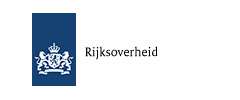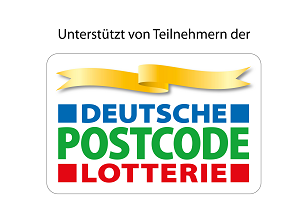Persistant Organic Pollutants
Implementing the Stockholm POPs Convention - NGOs push for fulfilment of Anti-Pollution promises
02.05.2005 |Sascha Gabizon
Environmental organisations from around the world will be meeting in the Uruguayan capital to demand compliance with the Stockholm Convention on Persistent Organic Pollutants (POPs) and the expansion of its ”black list” of banned chemicals.
POPs are chemicals that remain intact in the environment for long periods, become widely distributed geographically, accumulate in the fatty tissue of living organisms -- and can thus be passed along the food chain --and are toxic to animals and humans.
The activists meeting in Montevideo will also demand comprehensive studies to detect the origin of the ”dirty dozen” prohibited toxins.
The Convention is aimed at eliminating or reducing levels of eight chemicals used as pesticides (aldrine, chlordane, DDT, dieldrine, eldrine, heptachlor, mirex and toxaphen), two industrial compounds (hexachlorobenzene and polychlorinated biphenyls, more commonly known as PCBs), and two unintentional byproducts of chemical production and the burning of chlorinated substances (dioxins and furans).
The majority of these chemicals are organochlorines or byproducts of their production or use. Exposure to these 12 toxins has been shown to increase the risk of cancer, hormonal imbalances, neurological disorders, infertility, diabetes and a weakened immune system.
The Convention, adopted in May 2001 in Stockholm under the auspices of the United Nations Environment Programme (UNEP), has been signed so far by 151 countries and ratified by 97. It entered into force in May 2004.
”Up until now, the only thing that has been done is an inventory of the pollutants that have been detected, but without determining the exact places where these emissions are produced. We are going to call on the governments to report on what they have done during this time,” Carlos Santos of REDES, the Uruguayan affiliate of the worldwide environmental coalition Friends of the Earth, told IPS.
The NGOs will also demand that the parties to the Convention expand the list of prohibited chemicals to include pesticides like fipronil sulfuramide, lindane, endosulfan and 24D, which are also considered persistent pollutants.
In Uruguay, for example, the government has banned the import of all products included in the Convention, but others that are no less dangerous continue to be used, activists report.
In an interview with IPS, María Cárcamo, a Uruguayan representative of the Latin American branch of the international Pesticides Action Network (RAP-AL), noted, ”The government banned the insecticide mirex, and that's good, but it wants to replace it with fipronil or sulfuramide, which have the same characteristics, even though they aren't encompassed by the agreement.”
In a recent RAP-AL report, Cárcamo stressed that the only ones who gain from this practice ”are the companies that produce and distribute these products, and unlike the case with mirex, they enjoy the additionalbenefit of charging patent payments.”
The Latin American countries that have ratified the Stockholm Convention are Argentina, Brazil, Chile, Ecuador, Mexico, Panama, Paraguay and Uruguay.
From Apr. 15 to 22, IPEN waged a worldwide campaign it called ”Keep the Promise”, referring to the commitments adopted by the countries that are parties to the Convention. Round table discussions were held in numerous countries to present the results of international research on POPs contamination.
The Global Egg Project involved taking samples from chicken eggs in a number of different countries and having them analysed in a laboratory in the Czech Republic. In Uruguay, the tests revealed levels of PCBs and dioxins in the southeastern town of Minas that were double the maximum limits set by the European Union (EU) for these substances.
Eggs from free-range chickens were collected near two cement factories in the area, one run by the Uruguayan state company ANCAP, the other by the Spanish transnational corporation CUCPSA, both potential sources of the toxic substances. Minas was chosen as the base for the study because of the large number of cases of hyperthyroidism reported there last year. Cárcamo, who will be attending the Conference of Parties in Punta del Este as an observer, plans to use the opportunity to protest the planned installation of two pulp mills near the western Uruguayan town of Fray Bentos, on the banks of the Uruguay River, which forms the border with Argentina along that stretch.
The two plants, both to be run by foreign companies -- ENCE of Spain and Botnia of Finland -- will increase emissions of dioxins and furans in Uruguay as byproducts of the industrial processing of cellulose, she warned.
Argentina is also concerned about the installation of these plants on the Uruguay River. Earlier this month, the governor of the eastern province of Entre Ríos, Jorge Busti, presented Argentine Foreign Minister Rafael Bielsa with a comprehensive report on the potential environmental repercussions of the factories.
In Mexico, eggs gathered in the southeastern city of Coatzacoalcos, home to a petrochemical complex, contained dioxin levels six times greater than the EU limits. Mexico has still not formed a committee to design a national implementation plan, a requirement of all signatories to the Convention.
In Chile, testing revealed high levels of dioxins and furans in eggs collected in regions where numerous cases of liver, gallbladder and kidney cancer have been reported. RAP-Al and the Alliance for a Better Quality of Life presented Chilean President Ricardo Lagos with a letter signed by over 50 civil society groups, with recommendations for living up to the international agreement.
In January, Chilean environmentalists succeeded in getting the government to order the closing of a cellulose plant in the southern coastal city of Valdivia. The pulp mill was shown to have caused the death of an alarming number of swans in a nearby nature sanctuary. However, the factory has since reopened. In Bolivia, the use of toxic agrochemicals has sparked growing concern. In December 2004, three children died in La Paz after being poisoned through contact with a chemical insecticide, and in January of this year, seven campesinos (peasant farmers) died after eating soup contaminated with a pesticide, although it is still not clear how the chemical got into the soup.
Press Release
6 May 2005, Punta del Este, UruguayThe International POPs Elimination Network (IPEN) congratulates Parties to the Stockholm Convention on Persistent Organic Pollutants (POPs) for keeping the promise at the first meeting of the Conference of the Parties in Punta del Este, Uruguay.
IPEN views the Stockholm Convention as a promise by the global community to take action to protect human health and the environment throughout the world from the injuries that persistent organic pollutants cause. After a week of hard work by governments, NGOs, and other civil society stakeholders, IPEN is pleased that the Stockholm Convention is on track toward realizing its promise.
Financial and Technical Resources: Parties laid the necessary legal groundwork to provide developing country Parties with financial and technical resources that will cover the full incremental costs associated with fulfilling their obligations under the Stockholm Convention.
Public Participation and Awareness: Parties agreed to keep the Convention promise of full access to information, transparency, and public participation in Convention implementation activities. IPEN congratulates the many governments that maintained an open dialogue with our Participating Organizations throughout the Conference, and that committed themselves toward building a transparent, participatory process for implementation of the Convention. This cooperative spirit and practice directly contributed to the successful results of COP 1.
Elimination of Intentionally Produced POPs: IPEN is encouraged by those Parties that recognized the importance of public health measures and non-chemical alternatives to address the problems posed by intentionally produced POPs. Regarding DDT, we congratulate Kenya for highlighting the need for integrated vector management (IVM) to address malaria. We remain concerned, however, by the resistance of some countries to take adequate measures to eliminate their reliance on DDT. We strongly encourage donor countries and financial institutions to support public health measures and non-chemical alternatives and techniques to rollback malaria.
Elimination and Reduction of Unintentionally Produced POPs: The Convention goal for unintentional POPs (e.g., dioxins) is to achieve their continuing minimization and, where feasible, ultimate elimination. IPEN is encouraged by the Parties recognition that more work is necessary to improve the guidelines for eliminating and reducing dioxins. These guidelines are crucial because of their implications for public health and their role in determining how financial resources will be allocated. IPEN recent Global Egg Project demonstrates the need for urgent action on unintentionally produced POPs.
Disposal Of POPs Wastes: The COP acknowledged that more work is necessary to improve the guidelines for the management of POPs stockpiles and wastes. We applaud the COP for recognizing the importance of continued, close cooperation and coordination with the Basel Convention in further improving and developing these guidelines.
Identification of New POPs: IPEN congratulates COP 1 for keeping the promise to establish an effective, transparent, and participatory body for evaluating new POPs that may be added to the Convention. We welcome and support the nomination by Norway of the flame retardant pentabromodiphenyl ether (penta-BDE) and the plan by Mexico to nominate the pesticide lindane (HCH). IPEN further urges Parties to consider the many other substances that are widely used and known to have POPs characteristics, including other brominated flame retardants; dicofol; endosulfan; perfluorinated chemicals, including but not limited to perfluorooctane sulfonate (PFOS); chlorinated paraffins; organotins; brominated dioxins and bromo-chloro-dioxins; polychorinated napthalenes (PCN); and octachlorostyrene (OCS).
Notes:
1. The International POPs Elimination Network is a global network of public interest non-governmental organizations working together for the elimination of persistent organic pollutants, on an expedited yet socially equitable basis. IPEN includes more than 350 public health, environmental, consumer, and other non-governmental organizations in 65 countries.
2. The Stockholm Convention on POPs is the first global, legally binding instrument whose aim is to protect human health and the environment by controlling production, use and disposal of toxic chemicals.


































